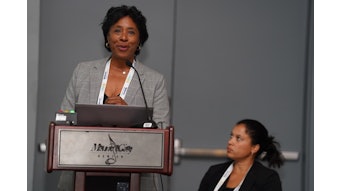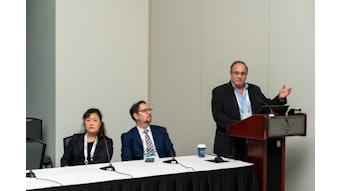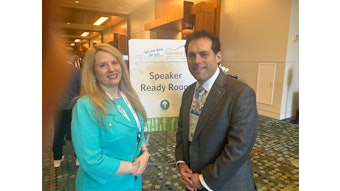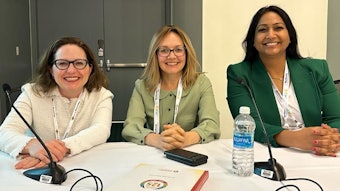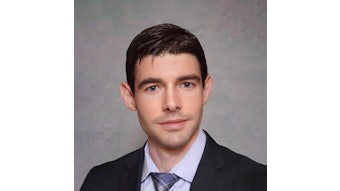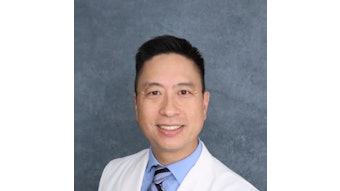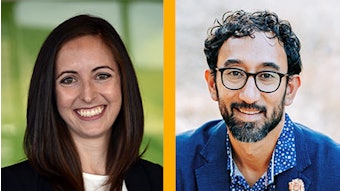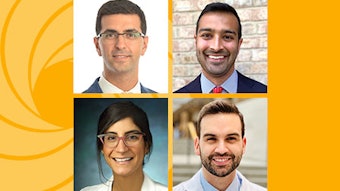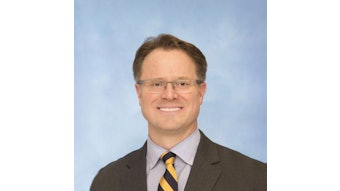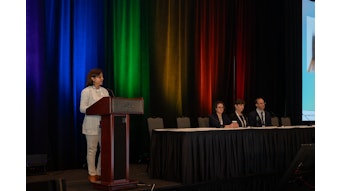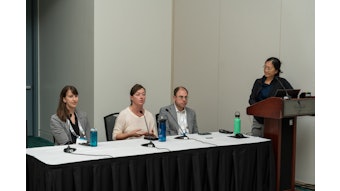Mission-Driven Quests
Although practicing otolaryngology in developing countries is challenging, it is endlessly rewarding.
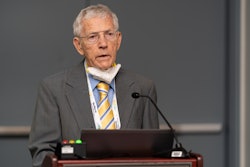
James P. Murphy, MD, an otolaryngologist at Tamale Teaching Hospital in Tamale, Ghana, is on a mission to, “Perk up interest in working in lower-income countries.”
During Monday’s “Practicing Otolaryngology-Head and Neck Surgery in the Developing World,” Dr. Murphy recounted his many experiences over 15 years of working in the impoverished areas of Ghana.
He reported that an astounding 75% of children suffer from malnutrition and thousands of children die from the lack of immunization to measles. Modern radiation is not available. And equipment and proper instruments are sorely lacking. “Where there is poverty, there is disease,” he said.
The United States has one physician for every 2,700 inhabitants. Northern Ghana has one physician per 27,000. Nearly half of the world’s population (3.4 billion people) are living on less than $5.50 a day and half of those in poverty are children.
Dr. Murphy cited the types of cases he has seen in his time in Ghana, including foreign body ingestion and aspiration, road traffic accidents and other trauma, otologic diseases, and neck abscesses from odontogenic infections.
He shared stories of children who aspirated on kernels of corn and groundnuts lying around the compound. He has also removed a pen cap, coins, and sticks. In one instance, the local medicine man advised a young man to eat a kola nut, and it would bring his girlfriend back. The young man nearly died. Dr. Murphy doesn’t know if the girlfriend came back.
Road traffic accidents are the leading cause of death to individuals under the age of 30, he said. “They like to travel at night without headlights.”
He also spoke movingly of the individuals he was unable to save. “You might wonder how this is supposed to perk your interest in working in developing countries after hearing this,” he joked.
He pointed to the satisfaction of knowing you are doing something worthwhile, becoming a better doctor, and the sheer personal enjoyment and happiness of helping people as key benefits. He said learning another culture and language also ranks high on the list.
“The more knowledge you have will allow you to persevere. I am not trying to discourage you. Besides doing surgeries when you go, you have to procure equipment and a tax-exempt number, work permits, medical license, and funds,” he said.
He listed the following organizations that he has found to provide financial support:
- Academic Model Providing Access to Healthcare (AMPATH)
- Foundation such as the Bill and Melinda Gates
- Doctors Without Borders
- Religious Organizations
- U.S. Military
- Developing World Countries
- American Academy of Otolaryngology–Head and Neck Surgery
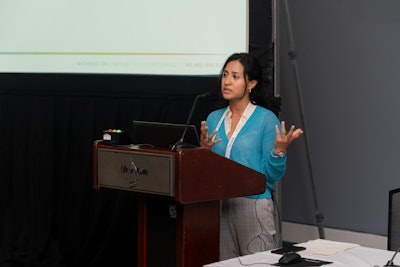 Zahrah Taufique, MD, MBA
Zahrah Taufique, MD, MBA
She pointed to a report from the Lancet Commission on Global Surgery for one overriding argument for short-term mission trips: Five billion people lack access to safe, timely, affordable surgery, the majority of whom are in low- and middle-income countries. An additional 143 million surgical procedures are required every year in these countries, she said.
She also provided the following advice for responsible short-term missions:
- Prepare volunteers/students before they travel, including cultural humility and an understanding of the history and culture
- Have a partnership with an organization based in the host country that collaborates over time in planning and carrying out the program
- Provide adequate supervision and setting of limits for students
- Work toward sustainability by training local staff
- Evaluate the impact on the host community
It is essential that we recognize and appreciate the communities we work with, she said. “We need to work with the locals and find out what they think they need, not imprint our views on that local culture.”
